QuestionMy mother in law recently "gifted" my husband and I with a hatchling turtle she found in her driveway in Waco, TX. His name is Nathaniel and we have recently IDed him as a Mississippi Mud Turtle. I have experience with keeping aquatic turtles (RES mostly), but my husband has none. We decided to keep Nathaniel and he is doing very well, growing like a weed and eating like crazy.
We currently have him in a 15 gallon long tank with plans to upsize once he grows a little more (he's about the size of a half dollar now), but we'd like to get him another turtle as a tank mate. I've read that Reeves turtles and spotted turtles stay relatively the same size (or just a little bigger) than Mississippi muds at maturity and are similar to muds in the fact that they are semi-aquatic/shallow water turtles, but I have no experience with either.
What I'd like to know is whether either or both of these types of turtles would make a good tank mate for a mud turtle (and which would be better if there's a preference or another you would suggest) as well as the size tank you would need for an adult of each species to share comfortably.
Any advice would be much appreciated and any additional details about the turtle you recommend would also be welcome.
Question #1 details: species: Mississippi Mud Turtle; habitat size: 15 gallon long aquarium; substrate: river rocks; humidity: unknown; bask temps: 85-90 degrees; lighting: unsure of brand and wattage, but we have a separate heat lamp sold for turtles and a UVB fluorescent in the hood; vet history: checked for possible respiratory infection after we found him, too small to inject, cleared on its own; food offered: reptomin hatchling pellets and freeze dried shrimp; feeding schedule: twice daily, morning and afternoon; supplements: turtle calcium block put in water every 2 weeks; last time ate: this morning; water given: n/a; last defecated: unknown; wild caught; shedding: n/a; other animals: shares tank with 2 snails, a cory catfish, 2 zebra danios, and 2 dalmatian mollies.
AnswerSorry, but these are general and BASIC husbandry info questions, and if you don't already know this, then you shouldn't have the turtle and it's irresponsible to have the turtle when you don't know the basics of this. I'm also not in anyway supportive of what any of you have done. As far as I'm concerned, you're wildlife thieves. He was STOLEN from nature. This is a wild turtle. He should be released immediately and you should learn some respect for wildlife, and about the dangers to this poor turtle of capturing a wild reptile and forcing it into captivity to be your curio.
I guess you aren't very well studied on the issue of taking wild caught reptiles as pets...the stress and health effects, the captive stress induced parasite blooms, etc. The only thing I'm going to advise you on - is setting him FREE!

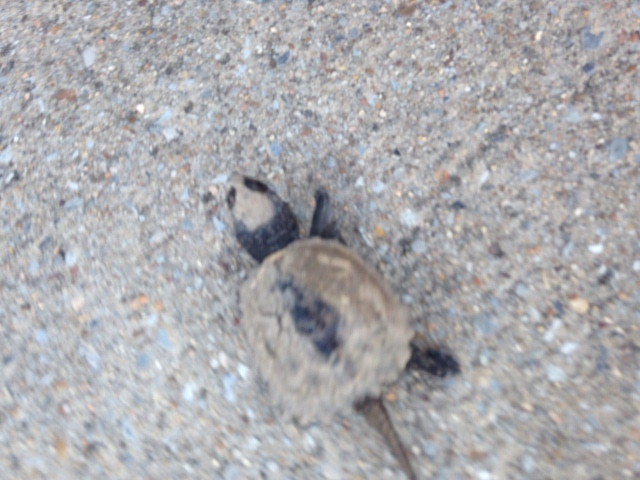 Turtle kind
Question
Turtle
I found a turtle in Northeast Te
Turtle kind
Question
Turtle
I found a turtle in Northeast Te
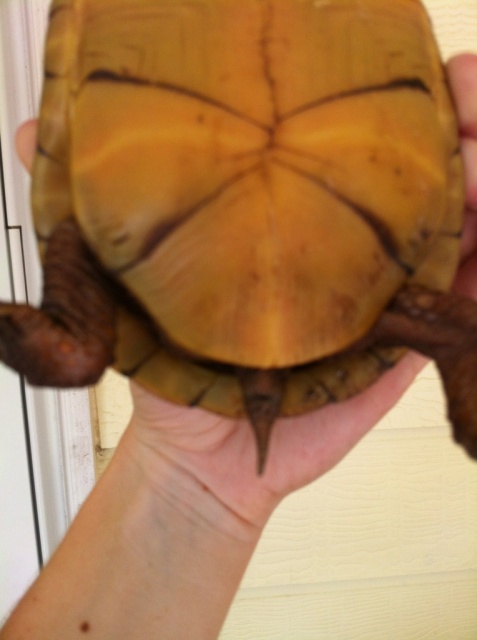 male or female box turtle?
Question
box turtle
Is this a male or female box
male or female box turtle?
Question
box turtle
Is this a male or female box
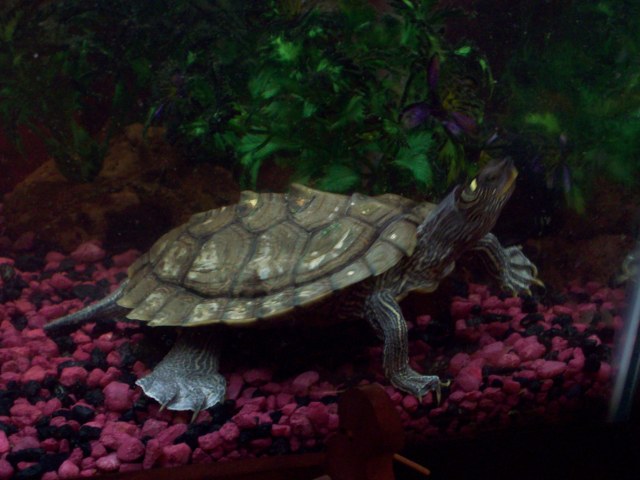 Trying to figure out what Species my
QuestionQUESTION: Trying to figure out what Species my
Trying to figure out what Species my
QuestionQUESTION: Trying to figure out what Species my
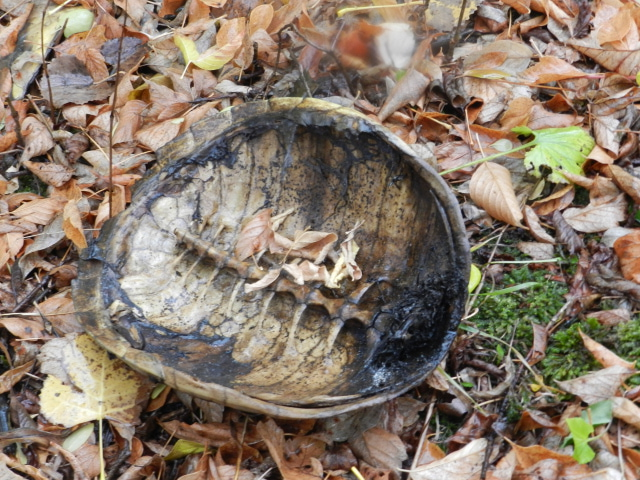 Found top of empty turtle shell
QuestionQUESTION: Hi my name is Angela and I live in Mi
Found top of empty turtle shell
QuestionQUESTION: Hi my name is Angela and I live in Mi
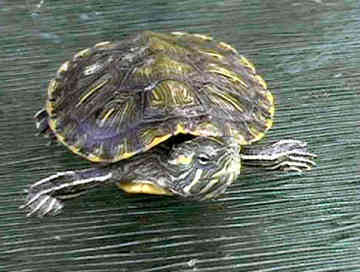 more info
Question
Aimee my turtle
I am not exactly sure how old
more info
Question
Aimee my turtle
I am not exactly sure how old